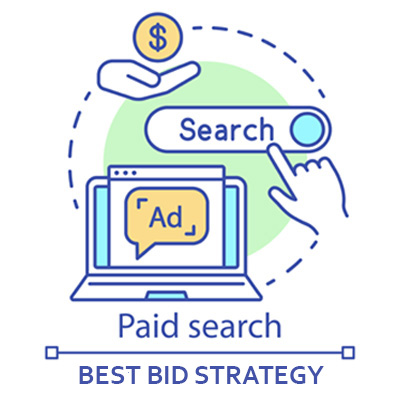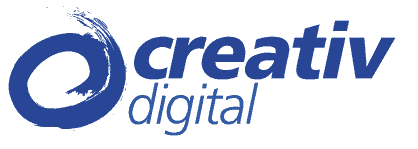Online advertising has become an indispensable tool for businesses seeking to reach their target audience effectively. Google Ads has long been the go-to platform, offering businesses an extensive reach and powerful targeting options. However, as the landscape evolves, marketers are starting to explore alternative advertising platforms that may provide comparable return on investment (ROI).
If you’re looking for alternatives to Google Ads, you’re in the right place because we have some suggestions you might want to explore.
Facebook Ads
Facebook Ads has emerged as a strong contender in the online advertising arena, with its massive user base and sophisticated targeting capabilities. With over 2.8 billion monthly active users, businesses can tap into highly specific demographics and interests to reach their ideal customers.
Facebook’s detailed analytics and tracking tools also enable businesses to optimize campaigns and maximize ROI. While Google Ads may have a broader reach, Facebook Ads’ social nature can create a unique engagement opportunity, potentially leading to increased brand visibility and conversions.
Bing Ads
Bing Ads, powered by Microsoft Advertising, offers an alternative to Google Ads by targeting a different user base. Although Bing has a smaller market share compared to Google, it still boasts millions of users, often with different demographics and preferences.
For businesses targeting specific niches or seeking to diversify their reach, Bing Ads can be an effective option. Bing’s lower competition levels could also result in lower advertising costs, potentially improving ROI for certain industries.
LinkedIn Ads
For businesses focused on B2B marketing, LinkedIn Ads can be a powerful tool. With over 740 million members, LinkedIn provides access to a highly professional and career-oriented audience. The platform’s advanced targeting options, such as job titles, industries, and company sizes, allow advertisers to precisely reach decision-makers and influencers.
While LinkedIn Ads may have a higher cost per click than Google Ads, the platform’s unique audience and professional context can lead to more qualified leads and higher conversion rates, ultimately driving a strong ROI.
YouTube Ads
YouTube, the world’s second-largest search engine, offers a vast advertising opportunity through its video platform. With billions of hours of video content watched daily, YouTube Ads provide businesses with a visually engaging medium to capture audience attention.
The platform offers various ad formats, including skippable and non-skippable ads, allowing advertisers to tailor their messages. As video content becomes increasingly popular, YouTube Ads can generate high levels of engagement, potentially translating into a favorable ROI.
Native Advertising
Native advertising involves placing paid content seamlessly within a platform, resembling the surrounding non-promotional content. Platforms such as Taboola and Outbrain offer native advertising options, enabling businesses to reach a wider audience through popular news and entertainment websites. Native ads blend in with the user experience, increasing the likelihood of engagement and driving clicks.
By using the power of storytelling and relevant content, native advertising can deliver comparable ROI to Google Ads while creating a more organic user experience.

Why is Google the Preferred Choice?
Google AdWords is considered one of the leading PPC (Pay-Per-Click) platforms for several reasons. Here are some key reasons why Google Ads is often preferred over other PPC platforms:
1. Wide Reach: Google is the most popular search engine worldwide, with a vast user base. This means that advertising through Google Ads allows you to reach a larger audience compared to other PPC platforms.
2. Search Intent Targeting: Google Ads enables you to target ads based on search intent. When users search for specific keywords or phrases, your ads can appear alongside relevant search results. This intent-based targeting helps you reach users who are actively looking for products or services similar to what you offer.
3. Network Diversity: Google Ads offers a wide range of advertising networks where your ads can be displayed. This includes the Google Search Network (text-based ads on Google search results pages), Google Display Network (visual ads on partner websites), YouTube (video ads), and more. This diverse network allows you to reach users across different channels and formats.
4. Advanced Targeting Options: Google Ads provides extensive targeting options to help you narrow down your audience. You can target users based on demographics, location, language, device, and even specific websites or apps. These targeting features allow you to focus your advertising efforts on the most relevant audience for your business.
5. Ad Extensions: Google Ads offers various ad extensions, which are additional pieces of information that can be displayed with your ads. Ad extensions enhance the visibility and relevance of your ads, providing more opportunities for users to engage with your business. Examples of ad extensions include call extensions, site link extensions, and location extensions.
6. Conversion Tracking and Analytics: Google Ads provides robust conversion tracking and analytics tools. You can track the performance of your ads, measure conversions, and gain insights into user behavior. This data allows you to optimize your campaigns, make data-driven decisions, and improve your return on investment (ROI).
7. Constant Innovation: Google is continually investing in its advertising platform, introducing new features and improvements. They strive to provide advertisers with advanced tools, automation capabilities, and machine learning technologies. This commitment to innovation ensures that Google Ads remains a cutting-edge platform for PPC advertising.
While there are other PPC platforms available, Google Ads’ wide reach, powerful targeting options, diverse network, and continuous improvement make it a preferred choice for many advertisers. However, it’s essential to consider your specific business goals and target audience to determine the most suitable PPC platform for your needs.
Bottom Line
While Google Ads continues to dominate the digital advertising landscape, there are several alternatives worth exploring for businesses aiming to diversify their advertising strategies. Platforms like Facebook Ads, Bing Ads, LinkedIn Ads, YouTube Ads, and native advertising offer unique features and audience targeting capabilities that can deliver comparable ROI.
However, it’s essential for businesses to consider their specific goals, target audience, and industry when selecting an alternative advertising platform. Carefully analyzing these factors and conducting thorough testing, can let businesses identify the most suitable alternative to Google Ads that aligns with their objectives and maximizes their profits.



